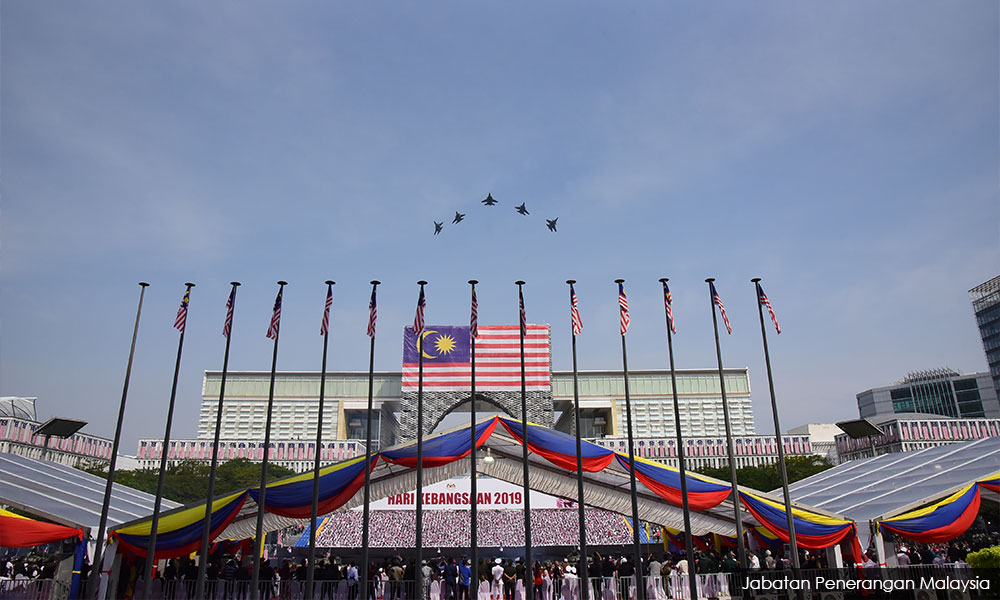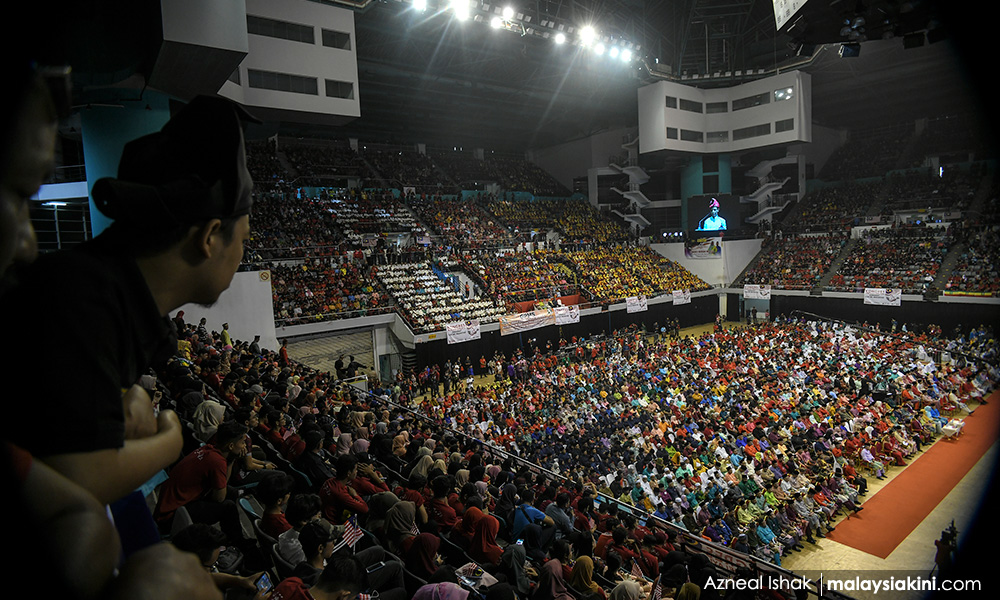
Published by Malaysiakini & Sin Chew, image from Malaysiakini.
Right from our days bouncing on our mother’s knees we’ve been taught that medicine tastes bad but we must swallow it for our own good.
The austerity mindset adopted by the government has taken this advice to heart.
Since taking over, Pakatan Harapan has instituted fiscal discipline and belt-tightening – albeit not without good cause.
The previous administration flung cash around like it was on a weekend pass, famously stuffing what couldn’t be sunk into Hollywood films and Mayfair mansions into Hermès handbags and pink diamond jewellery.
Harapan inherited the hangover after the binge, and is still paying off their bills.
Finance Minister Lim Guan Eng has done his part, working assiduously towards his 3-year plan of reconstructing the fiscal health of the nation.
It’s been a tedious and tiresome task, no doubt, one that no one should envy.
Well, nobody is accusing Malaysia of being a “cash is king” economy anymore, but the rakyat is starting to feel the pinch. It’s time to give them some relief – a sweet treat after the bitter pill.
As Wednesday’s Edge Financial Daily cover suggests, managing debts and developing the economy should not be mutually exclusive.
The economy must run as a global enterprise, after all. Even if we turn off the lights and pull up the covers, the rest of the kids on the block will still be out there kicking the ball around.
We cannot sign on to play in the fourth industrial revolution, for instance, without investing in the kit that allows us to compete on the field.
In addition to serious discipline and practice, we need the leadership to provide us with decent and adequate facilities.
While reducing public debt remains a priority, which the Finance Ministry is successfully achieving, we must also invest in programmes that support incremental economic gain.
This is especially for the lower-income segment of the economy so that they have tools to get them moving up and out of that bracket.
The lack of stimulus and support in key sectors will have the effect of stunting future growth.
Digital transformation is one such area, upon which hinges the success of Malaysia becoming a high value, high wages economy – so essential to our development.
These are goals that outlive any one administration, or any individual political party. Rather, all of society stands to gain from it.
Ever since we emerged from the Asian financial crisis, Malaysia chose to remain on a low-cost, low-wages track compared with the game-plan of tech-innovation and wage-inflation pursued by peers such as South Korea.
While we closed off our capital markets and localized ownership of our strategic assets, the Koreans built out their economy for global needs. Today the disparity is clear for anyone to see.
We cannot afford inaction or oversight now to repeat the same mistake for another generation of Malaysians. After all, the whole point of treating an injury is to enable performance to full potential.
Dr. Rais Hussin is President & CEO of EMIR Research, an independent think tank focused on strategic policy recommendations based upon rigorous research.
刊登在:星洲网 (Sin Chew).
打从懂事开始,我们就知道药物的味道并不好,但为了我们好,我们必须将它吞下去。
政府采取的紧缩态度已经显示了这点。自上台以来,希望联盟一直建立财务纪律和紧缩──虽然没有充分的理由。前朝政府大肆挥霍,以好莱坞和上流社会也无法媲美的程度,购买了爱马仕包包和粉红色钻石。
希盟继承了一堆烂摊子,并且仍在偿还债务。财政部长林冠英尽了一切力量,为制定国家未来3年的财务健康指定计划。毫无疑问,这是一项繁琐和累人的工作,任何人都不会羡慕。
好吧,没有人再指责大马是“现金为王“的经济体了吧,但是人民开始感到压力。是时候让他们松口气了──苦药后的甜点。正如周三的英文财经日报《The Edge Financial Daily》封面所建议的那样,债务管理和经济发展不应该互相排斥。
毕竟,经济必须作为一个全球企业来管理。即使我们关掉灯光和拉上窗帘,其他人还是会在外头踢球。例如,如果没有投资允许我们也入场踢球,我们就无法加入第四次工业革命的赛场。除了严格的纪律和实践,我们还需要领导才能,为我们提供体面和充足的设施。
虽然减少公共债务是一项优先工作,而财政部已经成功实现,但我们还必须投资于支持增加经济收益的计划,尤其是针对经济中较低收入阶层的计划,以让他们具备向上流动和脱离该阶层的工具。
关键领域缺乏刺激和支持将阻碍未来的增长。数码化转型就是其中之一,这取决于大马是否能够成功成为高价值、高收入经济体──这对我们的发展很重要。这些目标比任何一个政府部门或任何政党都生存都来得重要。相反,整个社会都将从中受益。
自从我们摆脱亚洲金融危机以来,大马一直维持在低成本、低收入的轨道,完全无法与韩国这等追求科技创新和工资膨胀的大玩家相比。在我们关闭资本市场及对战略资产进行所有权本土化时,韩国人建立了满足全球需求的经济。今天,差距显而易见。
我们现在无法承受无所作为或疏忽并让下一代经历同样的错误。毕竟,疗伤的要点是让药效得到全面发挥。
莱斯福贤是EMIR Research的总裁兼首席执行官,EMIR Research是一个独立的智囊团,专注于根据严格的研究提出战略政策建议。

